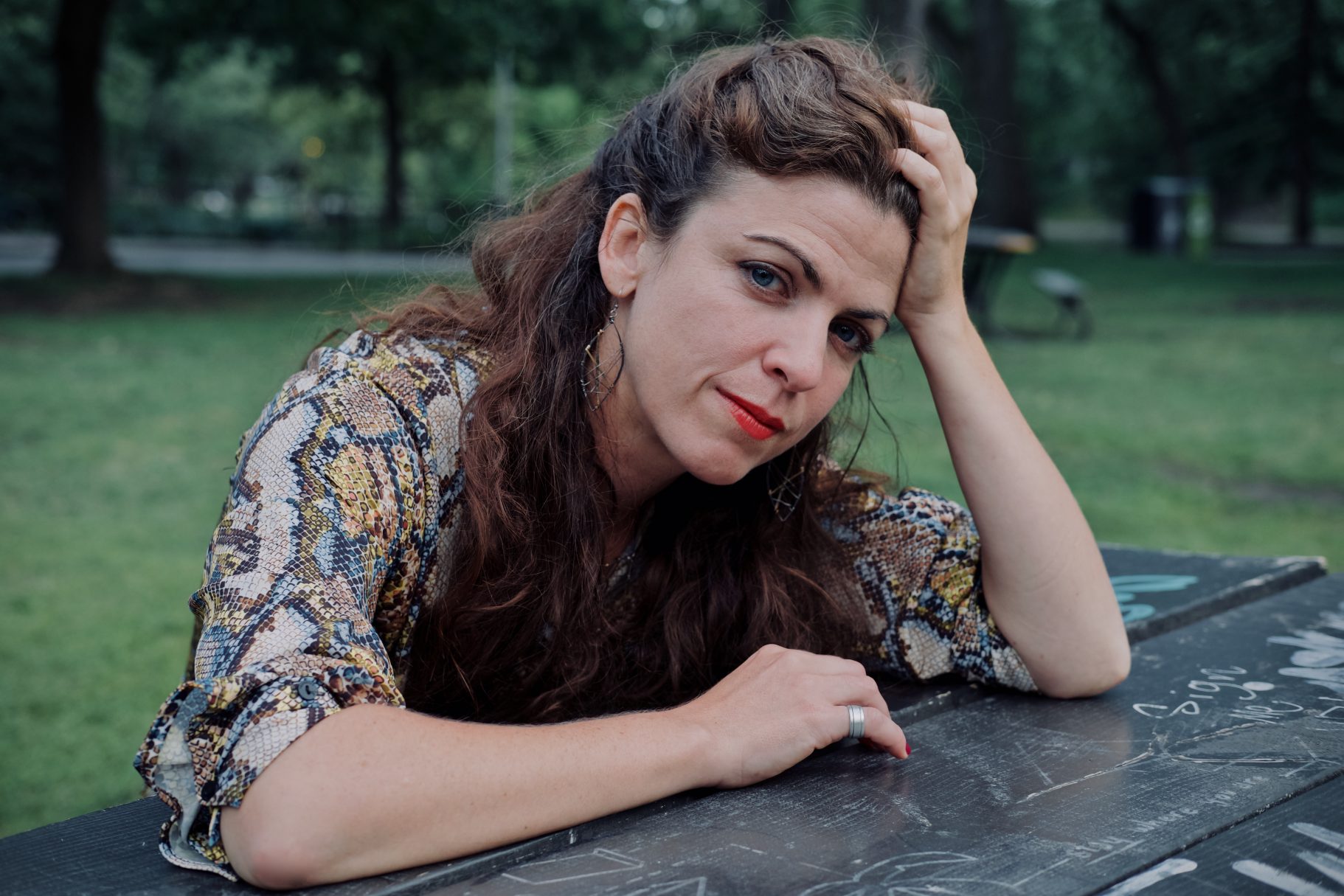Interview with Catherine Bourgeois, co-creator of VIOLETTE

JAN. 14th, COVID-19 UPDATE – CANCELLATION OF VIOLETTE
Just a few weeks away from our presentation of VIOLETTE, we sat down for an interview with Catherine Bourgeois, cornerstone of the Montreal-based company Joe Jack et John. Intimate work with strong themes and immersive experience through the use of virtual reality, you won’t walk away from VIOLETTE feeling quite the same…
Your company, Joe Jack et John, believes in theatre that is inclusive and politically engaged, and you produce powerful shows that challenge social norms. VIOLETTE is no exception, taking as its subject the abuse of women with intellectual disabilities. What prompted this choice of theme?
Catherine Bourgeois: Nearly 5 years ago, in a show produced in Montreal in collaboration with Théâtre Aux Écuries, we tackled the subject of fear. During outreach events with spectators with intellectual disabilities, I was struck by the alarming reality of some participants’ lives: the thing they were most afraid of was men within their own intimate circles. This was in the days of the Ghomeshi affair and the #AgressionNonDénoncée [#BeenRapedNeverReported] movement of victims beginning to speak out freely in public. As I followed Ghomeshi’s highly publicized trial, I found myself reflecting on the consequences that his acquittal could have for victims of abuse and their ability to speak out. I wanted to take on the theme of shame—what keeps us quiet, what reduces us to whispering our experiences to a friend… that’s what led me to the idea of this piece, VIOLETTE.
From the start, this was a small-scale, intimate work, aimed at an adventurous audience. Inspired by this “herstory,” uplifted by the courage of those who have broken the silence, strengthened by all the confidences shared with me over the years, I began to imagine an encounter where the reality experienced by some of my colleagues with disabilities would be exposed in an intimate, uniquely personal way. As if in a dream. This reality—more like a nightmare than a dream—includes the rate of sexual abuse against people with intellectual disabilities: between 70% and 90% for women, and up to 50% for men.
Can you tell us about the collective writing process for a work like VIOLETTE? How does it work?
C. B.: From its beginnings, our company has been a proponent of devised writing as both a political and an aesthetic choice, in order to create an authentic story and avoid the situation where a discourse that is specific to the community represented on the stage is appropriated by a playwright and director who are not part of that community. For Violette, the rigidity of film as a medium—once it’s in the can, it’s set in stone!—is the opposite of our usual process, in which the work evolves and changes right up to opening night and even throughout the run. So, when the writer of VIOLETTE (Amélie Dumoulin, co-founder of JJJ) set to work, it was based on the inspiration of the lived experience of several artists. There followed a back-and-forth process involving multiple workshops with the principal performer, further developing the piece in a way that respected her unique voice while at the same time adapting it to the medium of virtual reality.
You’ve taken an innovative approach in this production by incorporating virtual reality into the theatre experience. Why did you choose this technology?
C. B.: A lot of our work is multidisciplinary at Joe Jack et John. We often find that it’s through this hybrid approach to genres, or the dialogue between different disciplines (theatre, dance, spoken word, performance art, installation), that we find responses to aesthetic or dramaturgical challenges. In the case of VIOLETTE, it was the desire to create an intimate, authentic encounter, as well as the topic—a topic that one tends to whisper in a friend’s ear about, not proclaim loudly on a stage—that initially sparked my interest in using this new form. Virtual reality is also described as a medium of empathy, allowing the user to enter into direct contact with another reality—to walk in someone else’s shoes.
Meanwhile, the realm of new technologies is greatly dominated by white men, especially in the case of virtual reality, which owes much of its development to the pornographic and gaming industries. So, it’s also partly out of a desire for balance that I wanted to explore this medium by placing a feminine and feminist discourse front and centre.
What would you say to the public of Vancouver to convince them to come and take part in VIOLETTE?
C. B.: In this time of isolation, the intimate encounter at the heart of VIOLETTE takes on a whole new importance, allowing us to enter into someone else’s humanity—an opportunity that is even more rare now than in normal times. In addition to this unique intimacy, I think that the resilience that we discover within the dreamscape of Violette’s imagination is absolutely inspiring!
***
JAN.14th, COVID-19 UPDATE: CANCELLATION OF VIOLETTE.
VIOLETTE’s experience, open to only one visitor at a time, will take place from January 28 to February 6, 2021 at Studio 16. Info & tickets on the creation webpage, just here.
